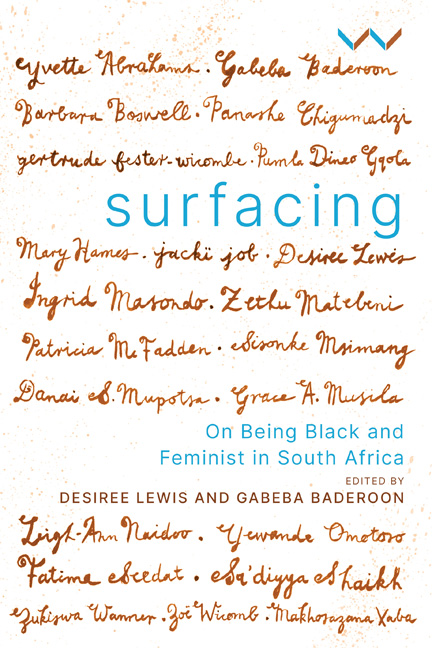Book contents
Chapter 20 - Living a Radical African Feminist Life: A Journey to Sufficiency Through Contemporarity
Published online by Cambridge University Press: 15 April 2021
Summary
Every now and then, as the result of a personal encounter that has brought me tremendous joy or sadness, or as the outcome of an intense struggle with some patriarchal institution or socio-cultural force, I find myself at a conjuncture in my feminist consciousness and lived reality. I realise that I am in a new place in my creative imagination and social circumstances. This sense of consciousness is what I understand as being at the cutting edge, consciously positioned in the shift as it occurs around one and within oneself. Over the years, I have learned to stop and take a careful, curious look inside my feminist self and acknowledge that I am growing intellectually and politically. I take time to scrutinise the material and political terrains which encompass each particular moment. Learning to recognise the flutter of change inside one is always very rewarding in thinking and pleasuring terms.
It is this sense of consciousness which is a key element in my notion of becoming contemporary – of imagining and shaping the identity and political content of ‘Contemporarity’, which is the pulse of current African feminist theorising and activism. Over the past decade, as a response to the inadequacy of feminism as a universal politics of women's resistance to patriarchal repression, and because of the seepage of nationalist ideology into feminist discourses on the continent, I have begun searching for an alternative feminist sensibility within the African context.
Initially, I started with a critique of liberal declarations and practices of citizenship, which keep the majority of women outside the ambit of laws and protections that are supposed to be universal entitlements. The realisation that women would have to reinvent the notion and practice of citizenship was a spark that set me on a new journey towards thinking about how African women must achieve Contemporarity. The notion of the contemporary is run through by debates of modernity and Westernism on the one hand. On the other is the inevitable backlash this elicits among African nationalists, those passionately searching for the authentic African male identity, which lies at the heart of nationalism and neo-colonialism.
- Type
- Chapter
- Information
- SurfacingOn Being Black and Feminist in South Africa, pp. 284 - 302Publisher: Wits University PressPrint publication year: 2021



